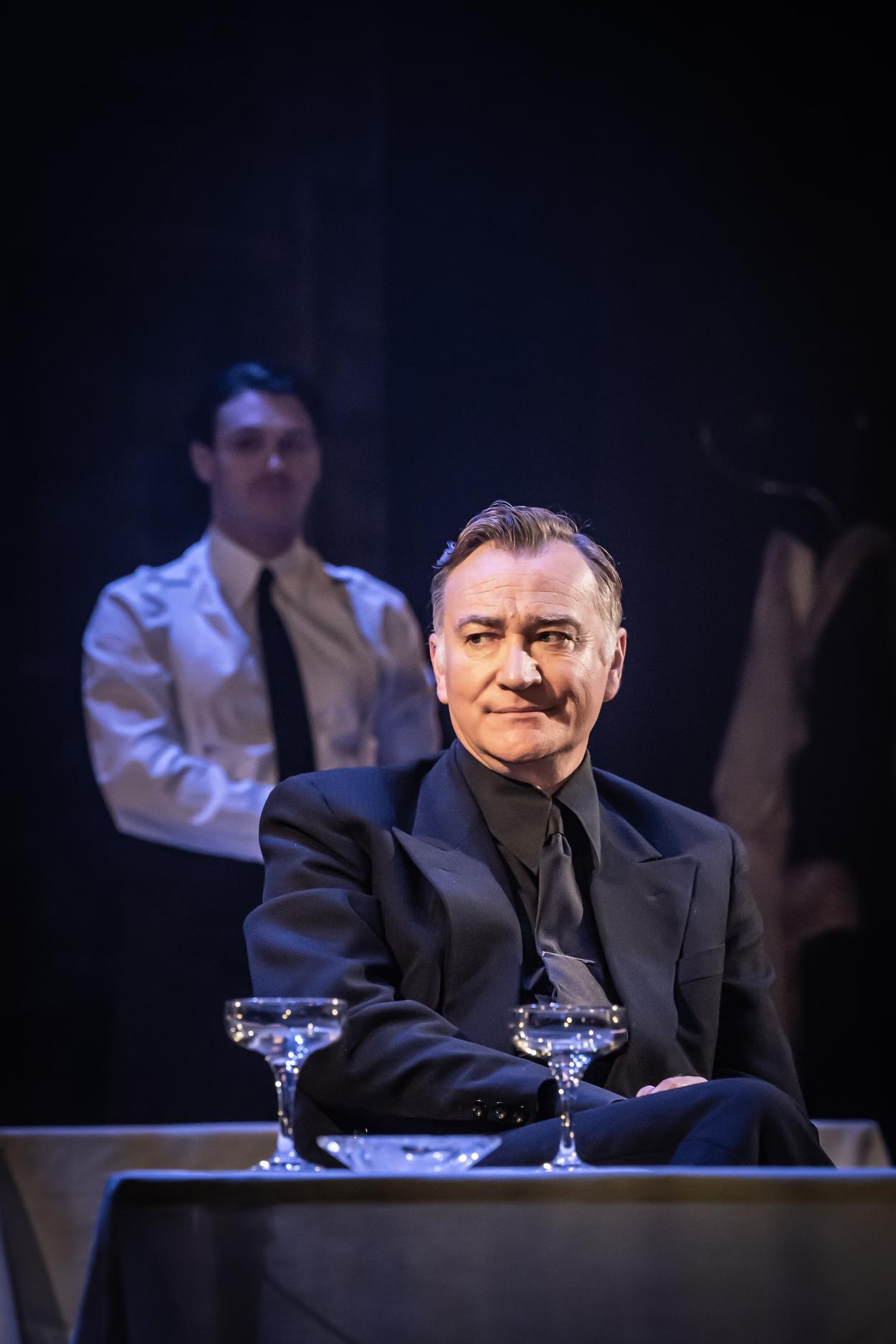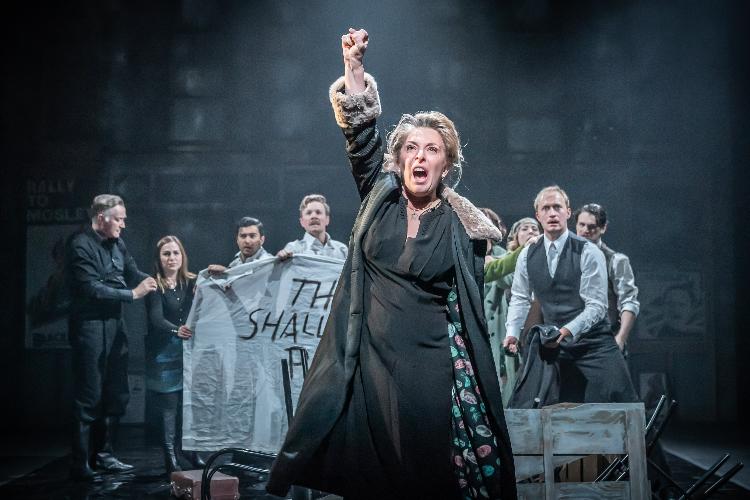With the current trend for cancel culture and an alarming increase in anti-Semitic feelings spreading around the country, it could be seen as naïve to put on a production with such negative connotations of a Jewish Character. However, this new adaptation brings a new perspective to the foreground.
The Merchant of Venice 1936 transports Shakespeare’s famous comedy into a much more troubling setting, during the rise of the British Union of Fascists in the East End of London. This shift in location brings a brand-new interpretation of the anti-Semitism throughout this play. By creating the characters that exhibit most of the anti-Semitism as Fascists, there is a severe uneasiness brought about by the language used, which usually might be somewhat ‘forgiven’ in a traditional version of the play with the excuse that ‘times have changed’.
The players in this production are nothing short of outstanding. Raymond Coulthard showed wonderful characterisation to bring Antonio to life. Taking the play's title character from being the well-loved, kind person that he is in standard productions of this play, and using history to highlight his anti-Semitic nature is a very interesting plot line. Coulthard showed great prowess to bring this point across. His ability to find the darkness in certain lines pushed the message across that the majority of characters in this play are highly flawed.
Hannah Morrish created a fantastic Portia. A character that generally hides her views slightly more than others until Act 4, Morrish shows a huge range of skills to create subtle changes in the persona of Portia. Every time Portia is on stage, she commands it, especially in the Trial of Antonio which is performed intricately by Morrish.
Tracy-Ann Oberman is a revelation. Her portrayal of Shylock is quite simply a masterclass of acting. To show this incredibly flawed character in a new light and give them a new meaning is no mean feat, but Oberman appears to do this with ease. Her ability to stand out, but not outshine her fellow players shows incredible skill, and helps to deliver this production to the high standard that is delivered.
This adaptation by Brigid Larmour is a triumph. There is a risk when you update a work such as The Merchant of Venice, that you can try to shoehorn the highly flawed character of Shylock into the category of ‘Hero’. This production highlights the flaws of this controversial character alongside the other key players, making you question where those flaws began and who is really in the wrong. In The Merchant of Venice 1936, Shylock is still an incredibly flawed character, however, those flaws, in this adaptation, are given meaning. Paired with the underlying story building throughout this production of the lead-up to the real-life battle of Cable Street in London, The Merchant of Venice 1936 is an incredibly powerful production that asks its audience to think about what they can do to help.
The show runs at The Watford Palace Theatre until Saturday 11th March. Tickets: here
Review: Joshua Thompson


